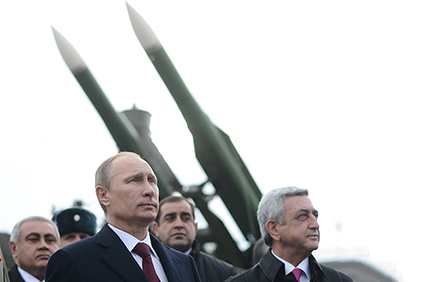Where does the EU Association Agreement take to Georgia and Moldova?
Georgia and Moldova have published the text of the EU Association Agreement. As assured by the European diplomats, the Association Agreements with the Eastern Partnership countries coincides in many provisions.
Here, in Georgia, the 1000-page document consists of a preface and 8 chapters, as well as contains information and protocols related to three chapters of the agreement. All the fields are defined on the principles of cooperation: political dialogue, reforms, cooperation in foreign policy and security, justice, trade and economic cooperation, financial assistance and the fight against frauds.
The introductory part of the text states about the EU’s readiness to assist Georgia in enhancement of democratic principles, rule of the law and human rights. The EU is committed to ensuring political and economic benefit for the citizens of Georgia. The Parties undertake to respect democratic principles, human rights, and fundamental freedoms, to counter the spread of weapons of mass destruction, to promote regional peace and security, to establish devotion to the free market economy principles, to respect the rule of law and the international obligations.
Read also
Certainly, there is still quite a lot to do prior to final signing of the agreement. Georgia should step by step make all the spheres comply with European standards, however it should be noted that Georgia has made the most important step demonstrating a political will. In its turn, the EU is committed to ensure political and economic interests to the citizens of Georgia, to help the country’s political, economic and institutional development. However, this is not all.
In the interview with “Rustavi 2” TV company, the President of Georgia Georgi Margvelashvili stated that the inhabitants of the occupied territories of Georgia would soon have such passports that would enable them to travel to European cities without a visa, which is provided for by the EU’s Association Agreement. Reminding about the entanglements at the Georgian-South Ossetia border made by Russian, Margvelashvili stressed that it is firstly directed against the Ossetes.
The President believes that it would be more interesting for the inhabitants of the occupied territories to travel to the European countries without a visa rather than staying on the other side of the wire. “Russia failed recognizing regional units of Georgia as independent states. Let’s see what interest they were pursuing from this war. Let no one say that there is not enough territory for Russia, and the war was for the sake of the territory. It’s not true. Let’s view the issue from the other side. This is Russia’s image of a modern world, where it is trying to play a role of a strong state of modern West, which has been seriously questioned. It is another question of who defeated in that war. Our fellow citizens in Sukhumi and Tskhinvali defeated. What is their prospective? Soon, we will show them these prospects. We would demonstrate the modern European Georgia, where a Tskhinvali resident can easily travel to Vienna, Berlin and Rome with its passport and without a visa. This is also considered in the Association Agreement.”
Margvelashvili has also noted that Georgian citizens who left for foreign countries thus will be able to return home. “And, of course, the second important point is the economic processes, which would enable foreign investors to bring to Georgia for modernization of our still weak economy.”
In other words, the EU Association Agreement would not only contribute to improving the country’s economy, facilitating the visa regime with the EU and the European integration of Georgian community, but also can be a decisive factor in terms of perceptions of Sukhumi and Tskhinvali residents.
What can today’s Russia offer by the Customs accession? A country, whose population concedes the countries of the world with average development by living standards, a state where on considering the rule of law, economic freedoms and the level of protecting human rights, we can record that we are dealing with a totalitarian country.
The Government of Moldova has also published the text of the Association Agreement. The 972-page agreement consists of a preface, where it defines the objectives and motives for concluding the agreement; seven chapters: basic principles, cooperation policy, security policy and foreign relations, freedom of justice, and security, economic and sectoral cooperation, trade and related issues (Deep and Comprehensive Free Trade Area, DCFTA), provisions regarding financial cooperation and the fight against violations, general and conclusive institutional provisions, annexes, as well as four protocols.
What did our society lose when the EU Association Agreement vanished…? Didn’t Armenia need the European 500 million free markets? Wasn’t it possible to enhance free economic relations with Russia, Kazakhstan, and Belarus within the CIS?
Becoming a Customs Union member Armenia closed the possibility of entering into free trade with other countries, while the EU Association Agreement was just a Free Trade agreement. Now having the right to free trade exclusively with Russia, Armenia not only suspended the possibility of free trade with other countries, but Armenia may appear in unfavorable conditions in the CU membership, if the price defined for this-or-that product, for example, emerges from the interests of Kazakhstan than of Armenia.
Anyway, let’s put economic factors aside… If the strongest argument for the CU membership is that we “intimidated our enemies” with September 3, then it is appropriate to note whether the presence of the Russian military base was not enough to “intimidate the enemies,” or whether, now, after the CU membership, Russia is going to recognize the independence of Nagorno-Karabakh…
Emma GABRIELYAN




















































